Water Softener Plant For Hotels & Restaurants
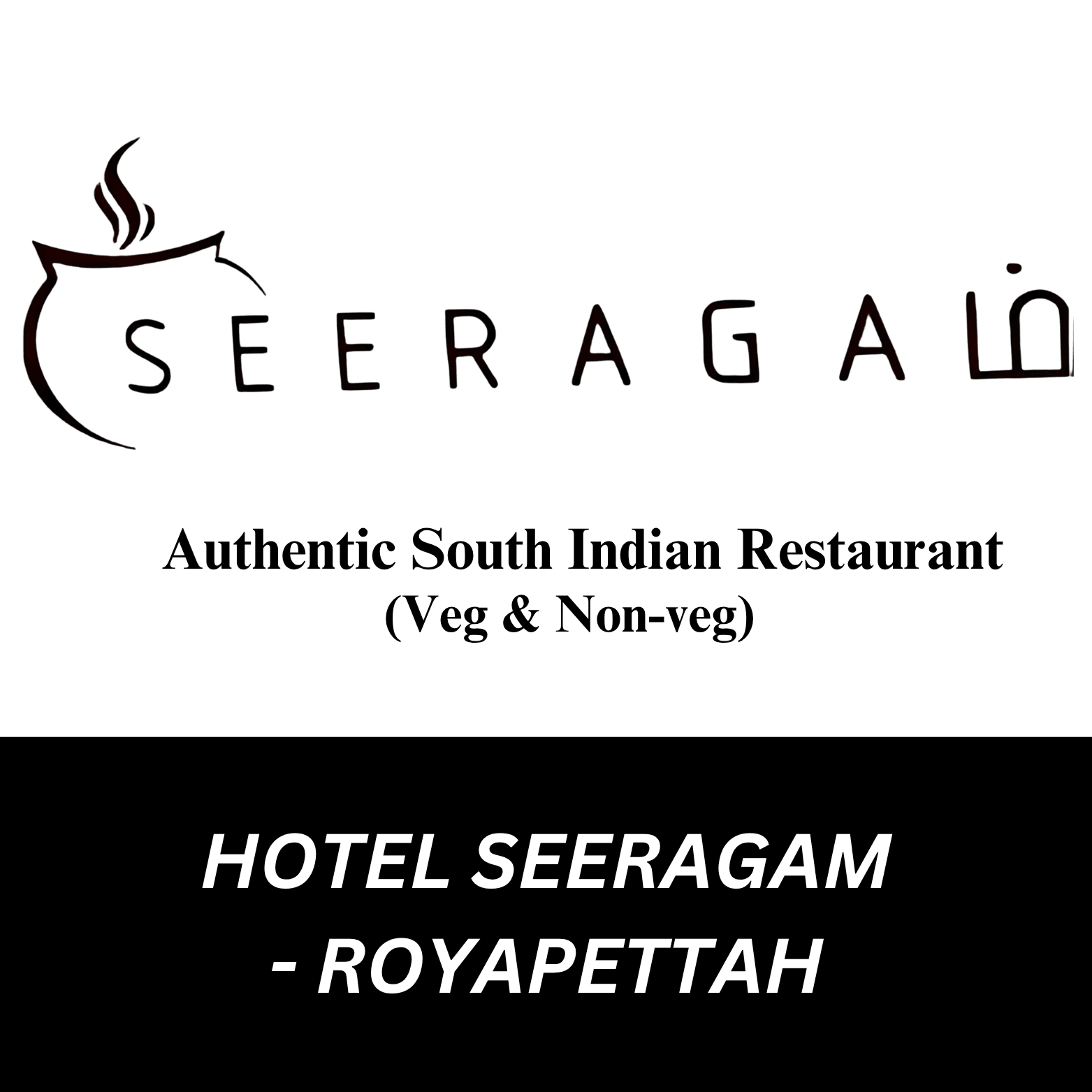




Get the best results of your water today !
Ready to solve your water quality issues with a custom Hard water solution? Contact us today for a free consultation or a tailored quote for an Iron removal plant. Our team is here to help you enjoy Clean and Soft water at Hotels and Restaurants.
From Chalky to Shiny
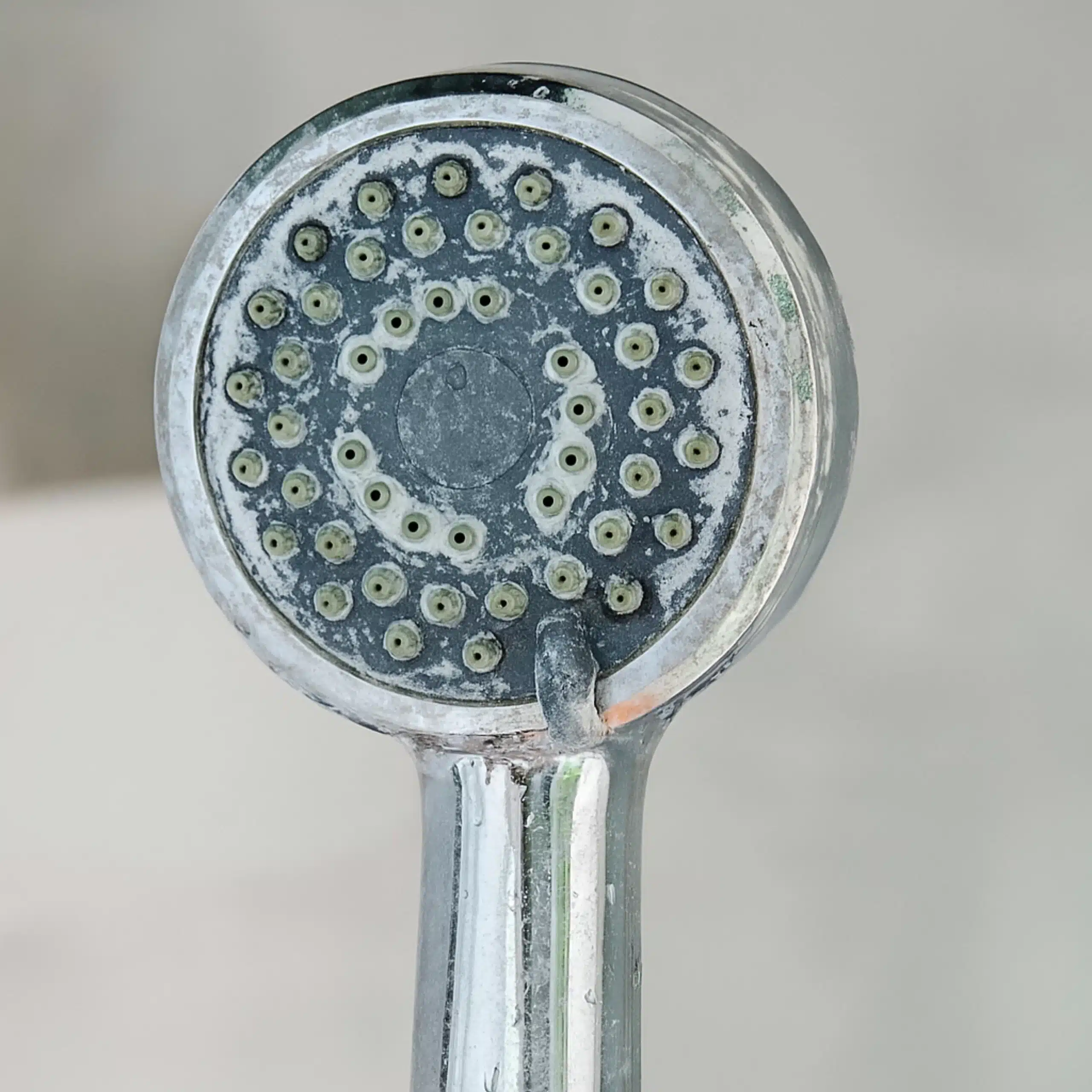
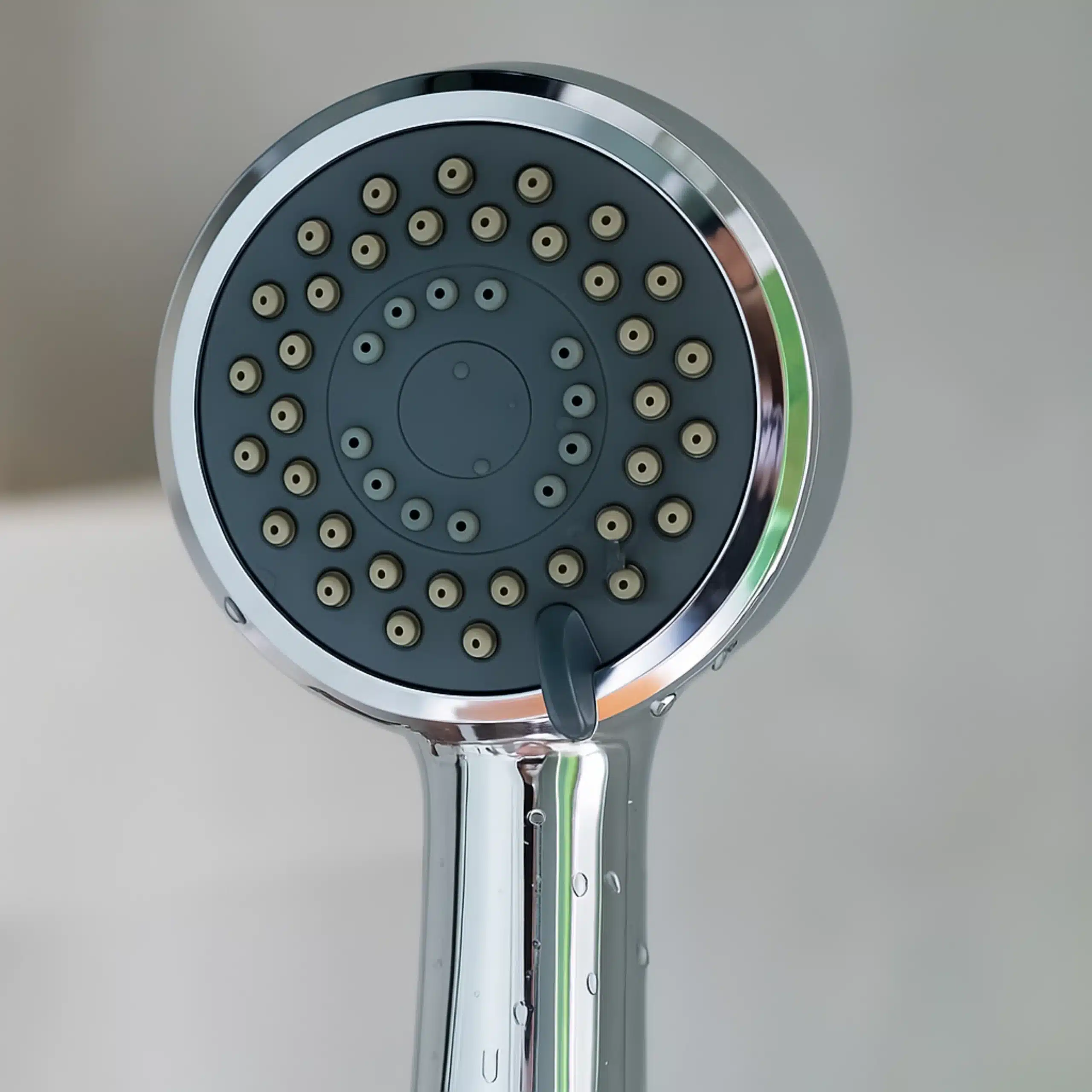
From Hard stains to Soft shine
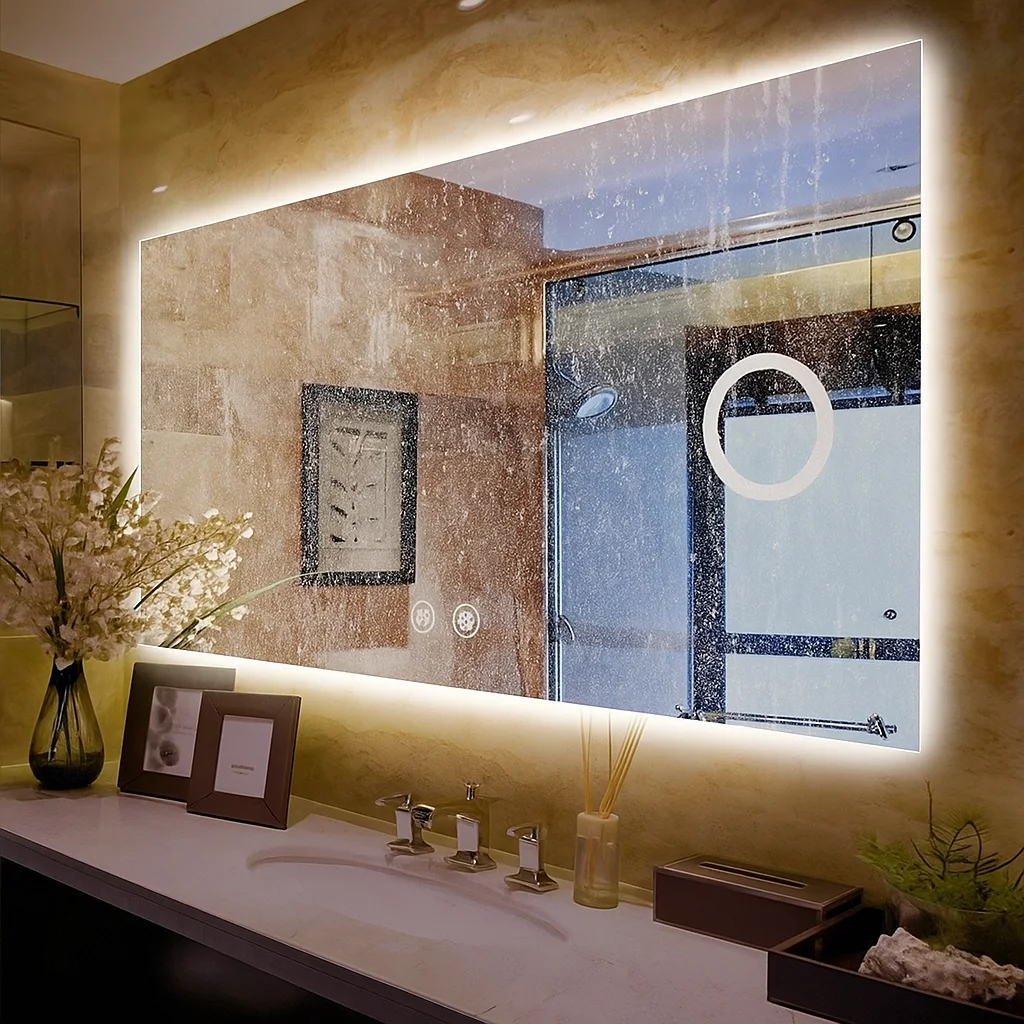
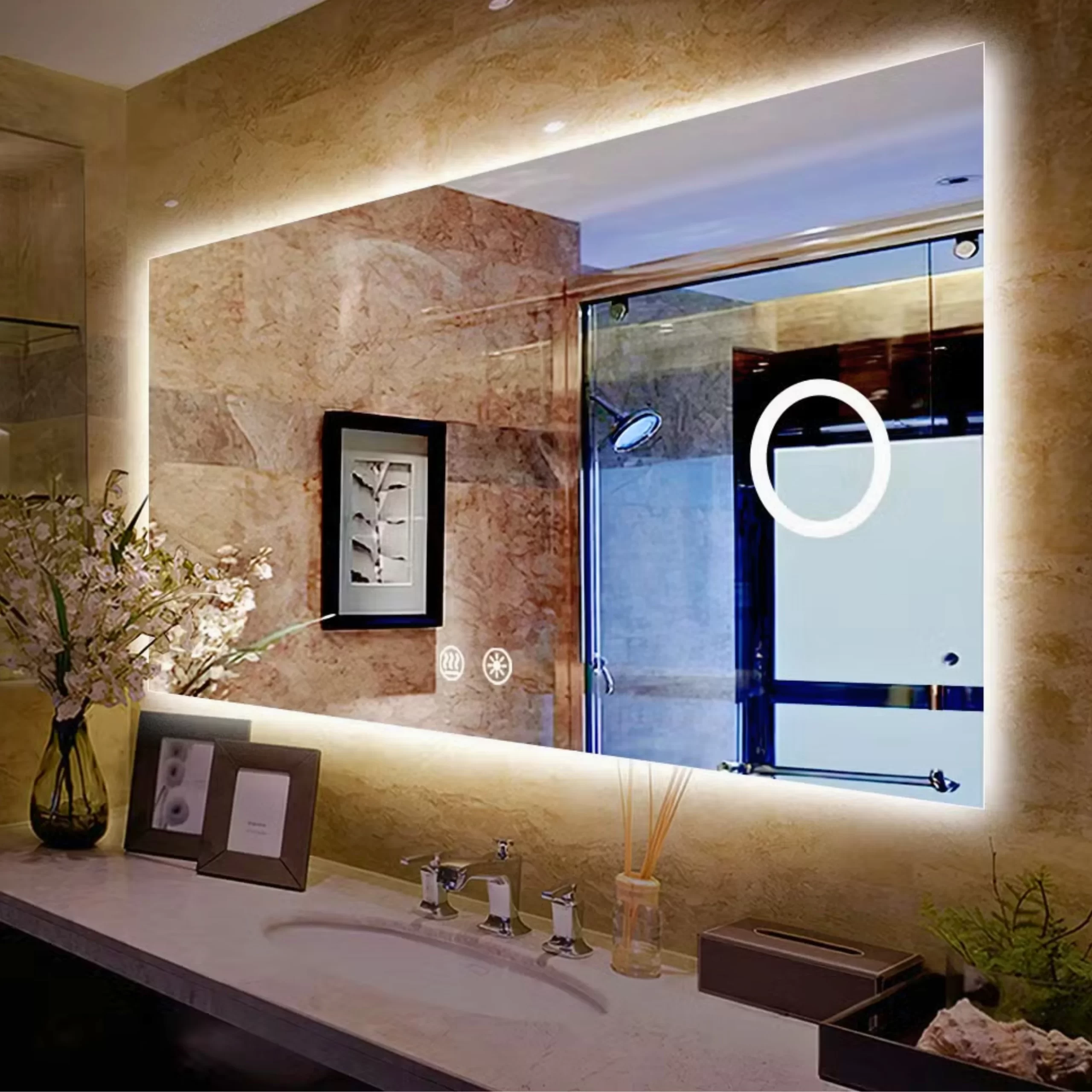
From dull to deluxe
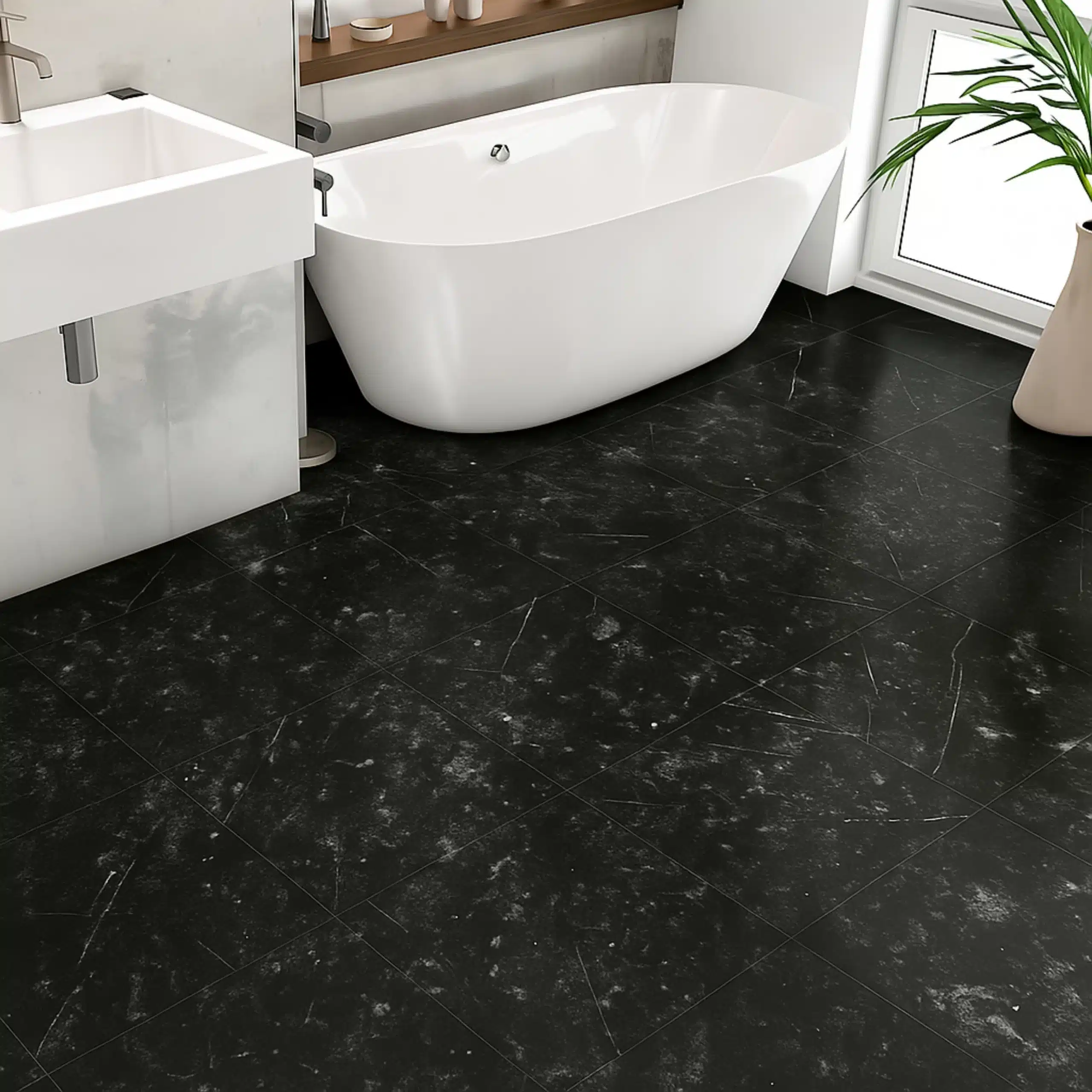
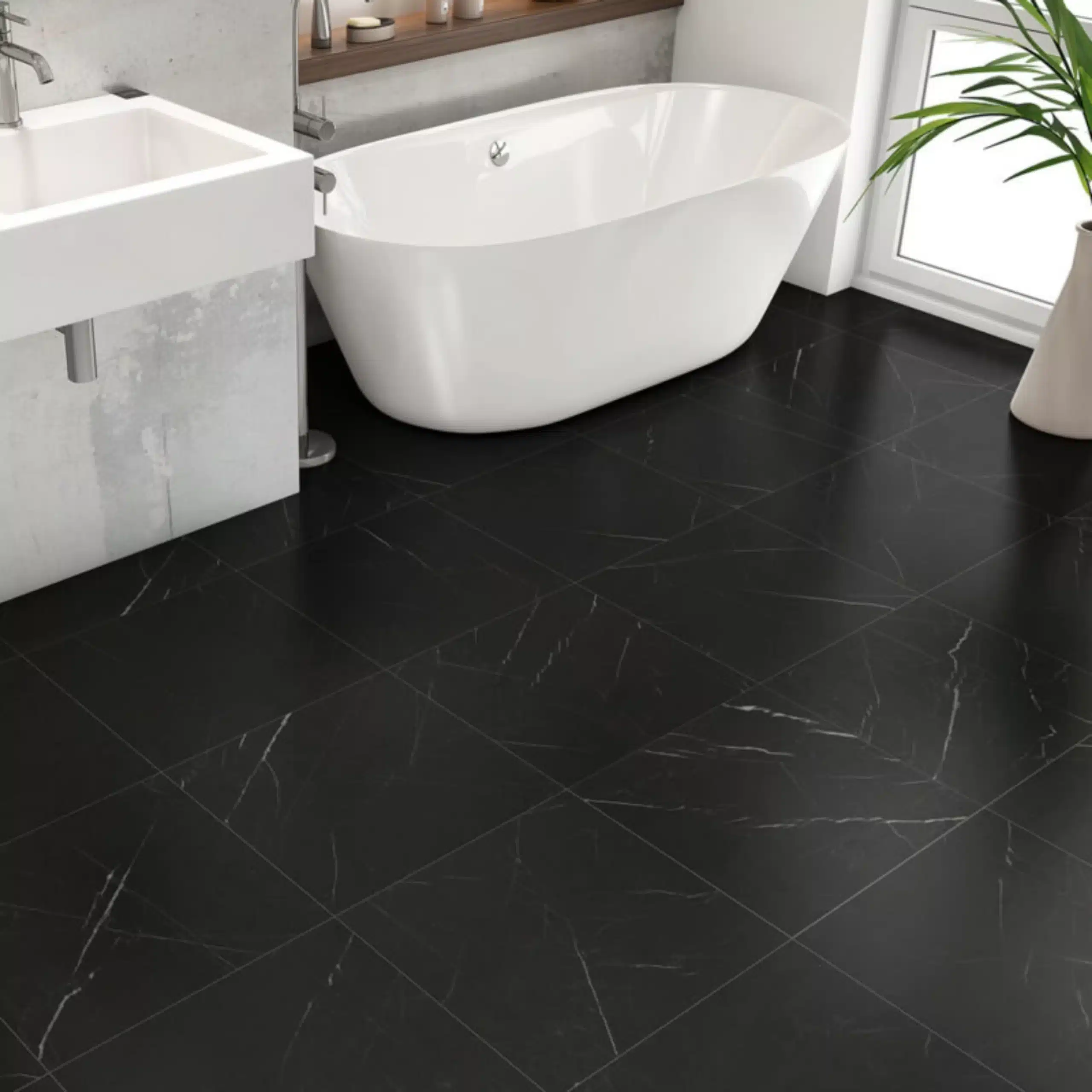
From crusty to classy


From cloudy to classy
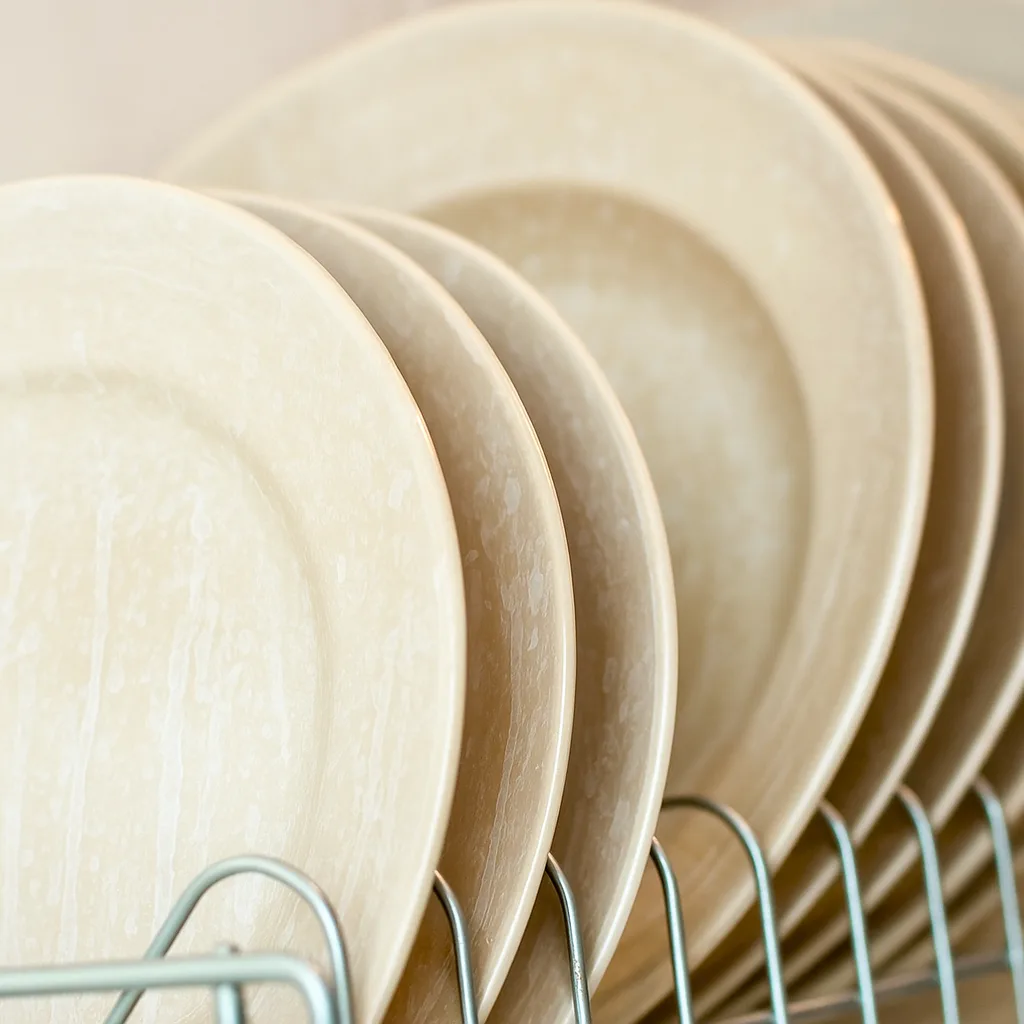
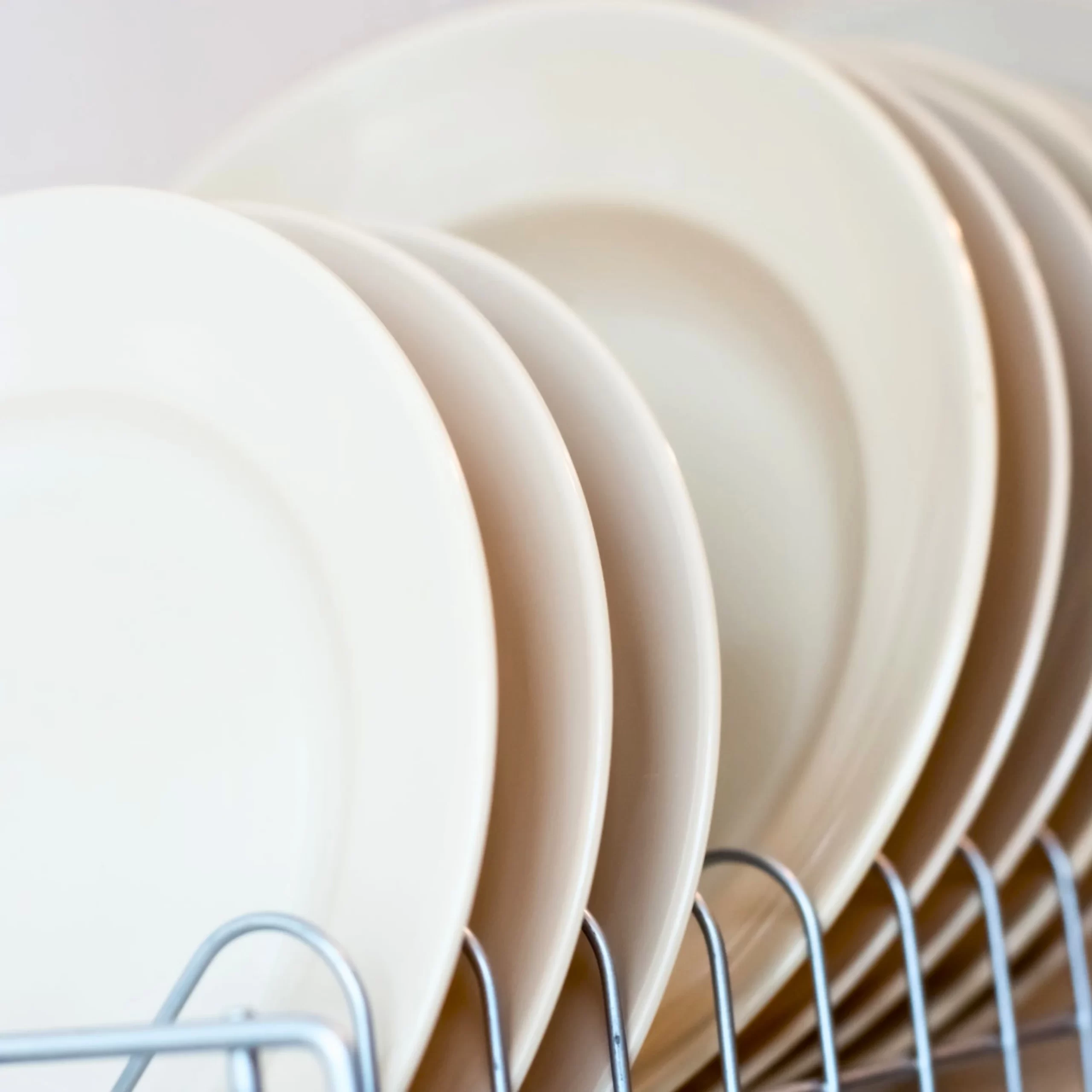
From Stained to Spotless
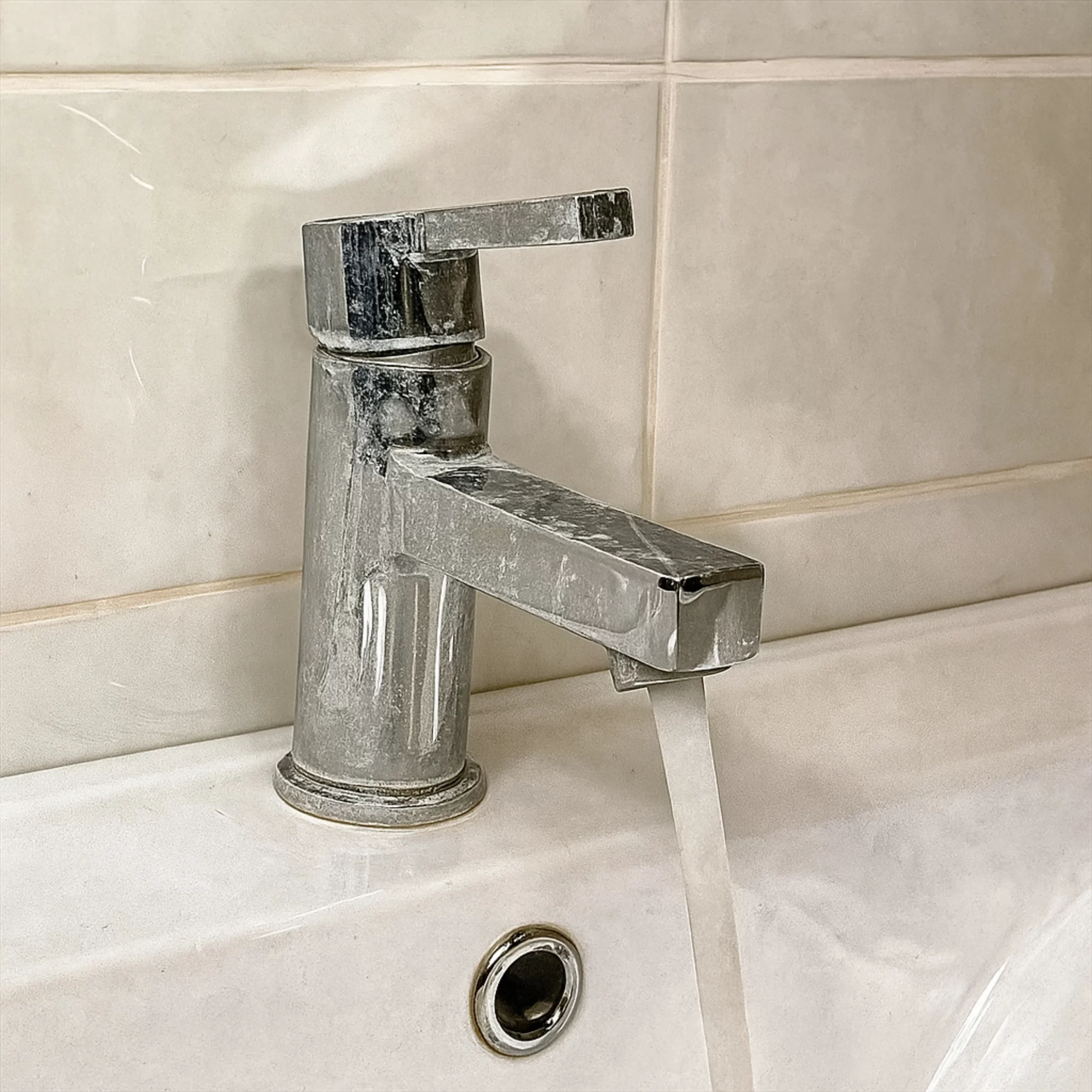
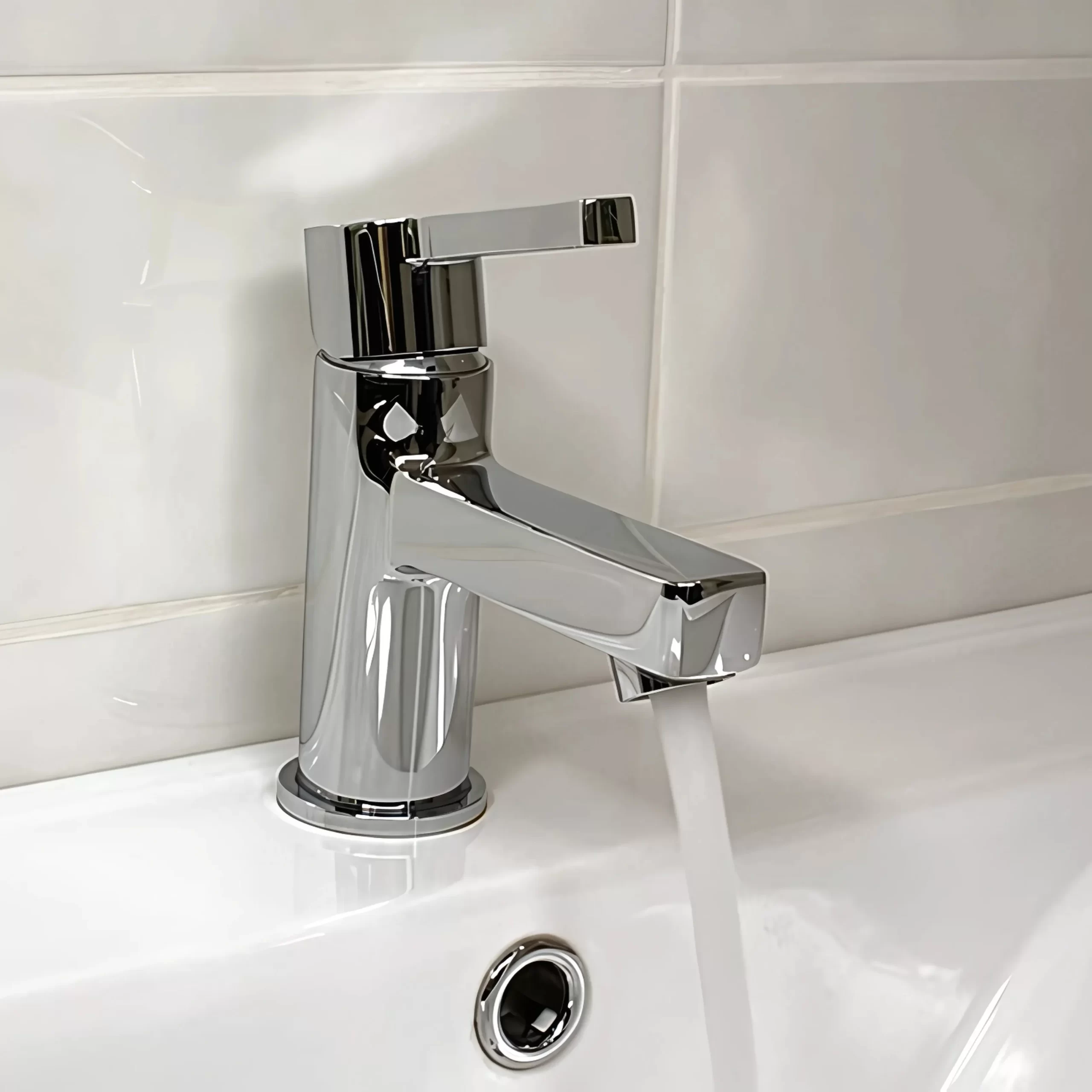
From Stained to Spot-Free
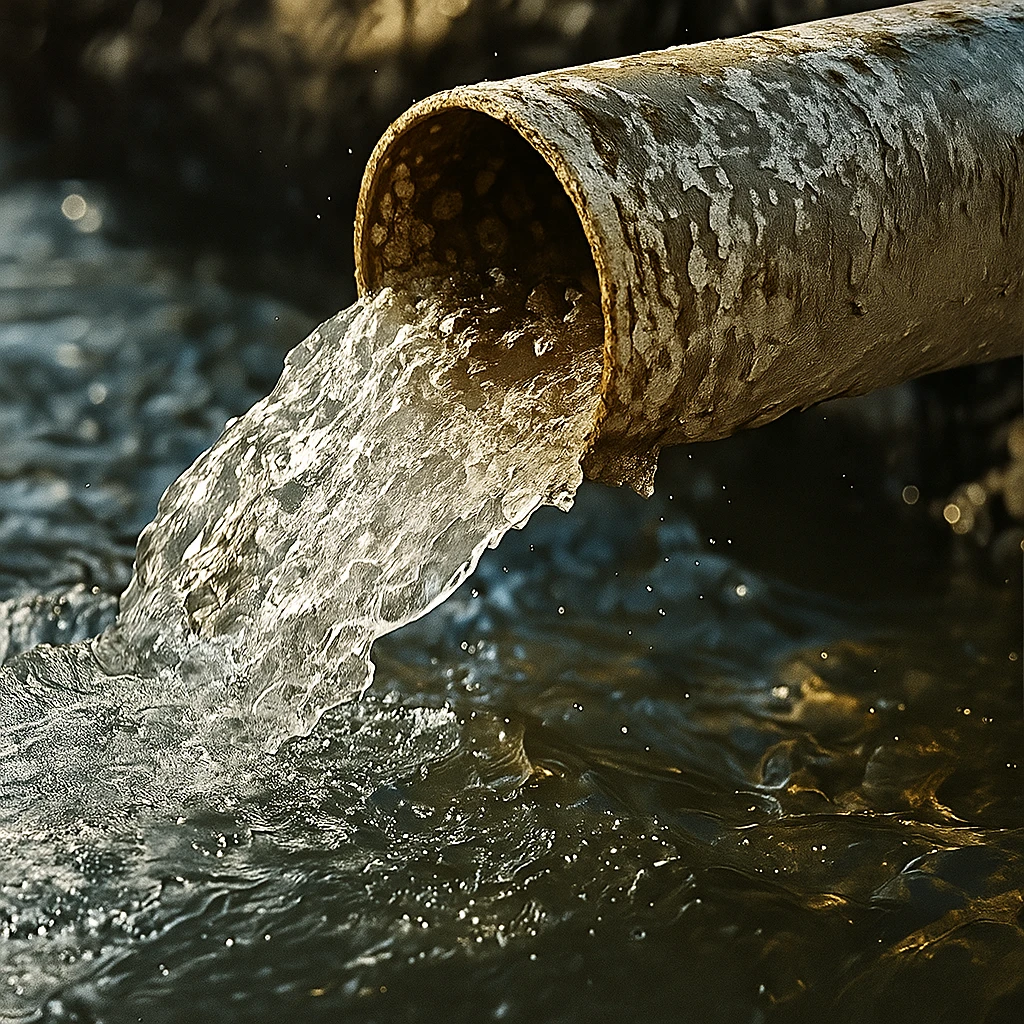
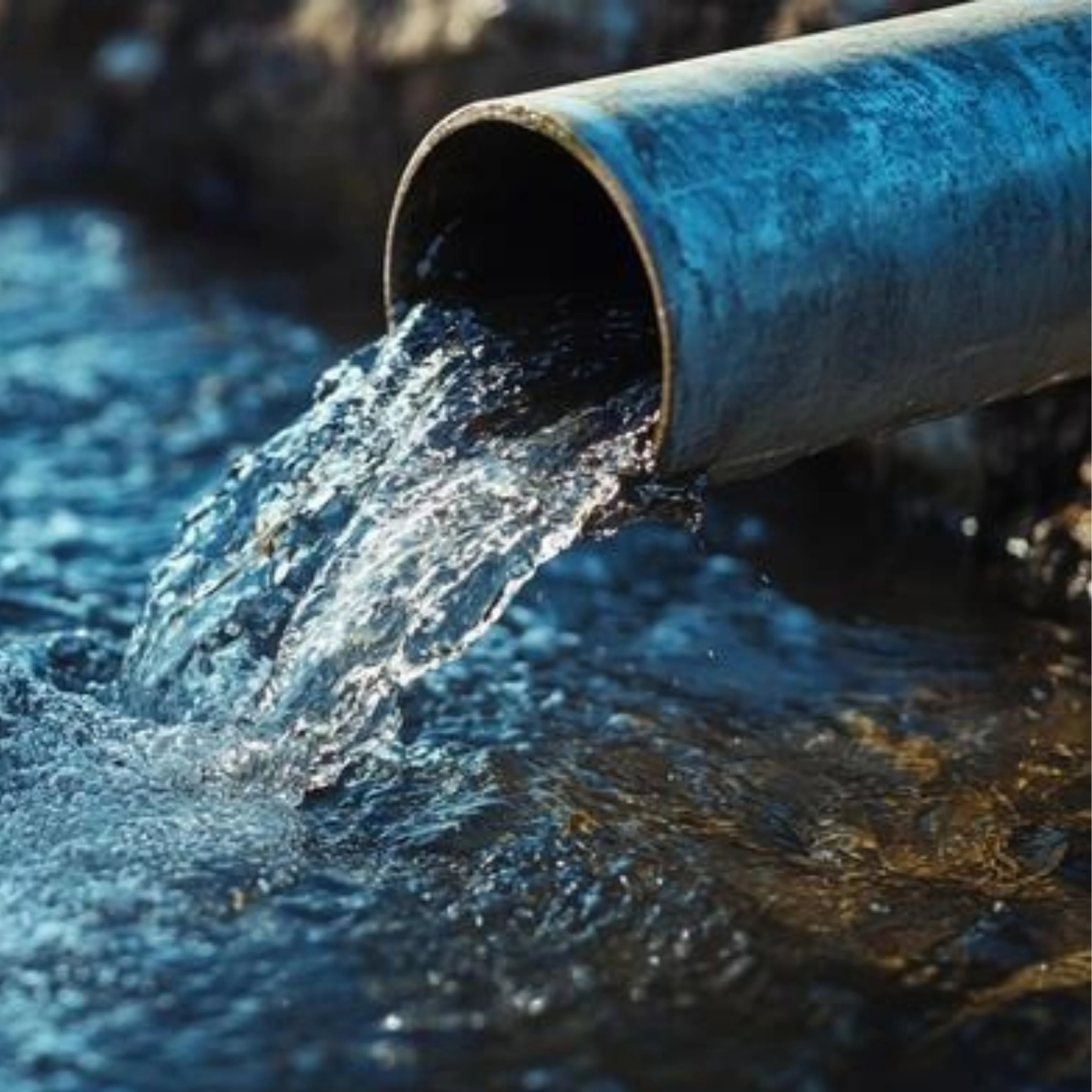
From Stained to Stainless
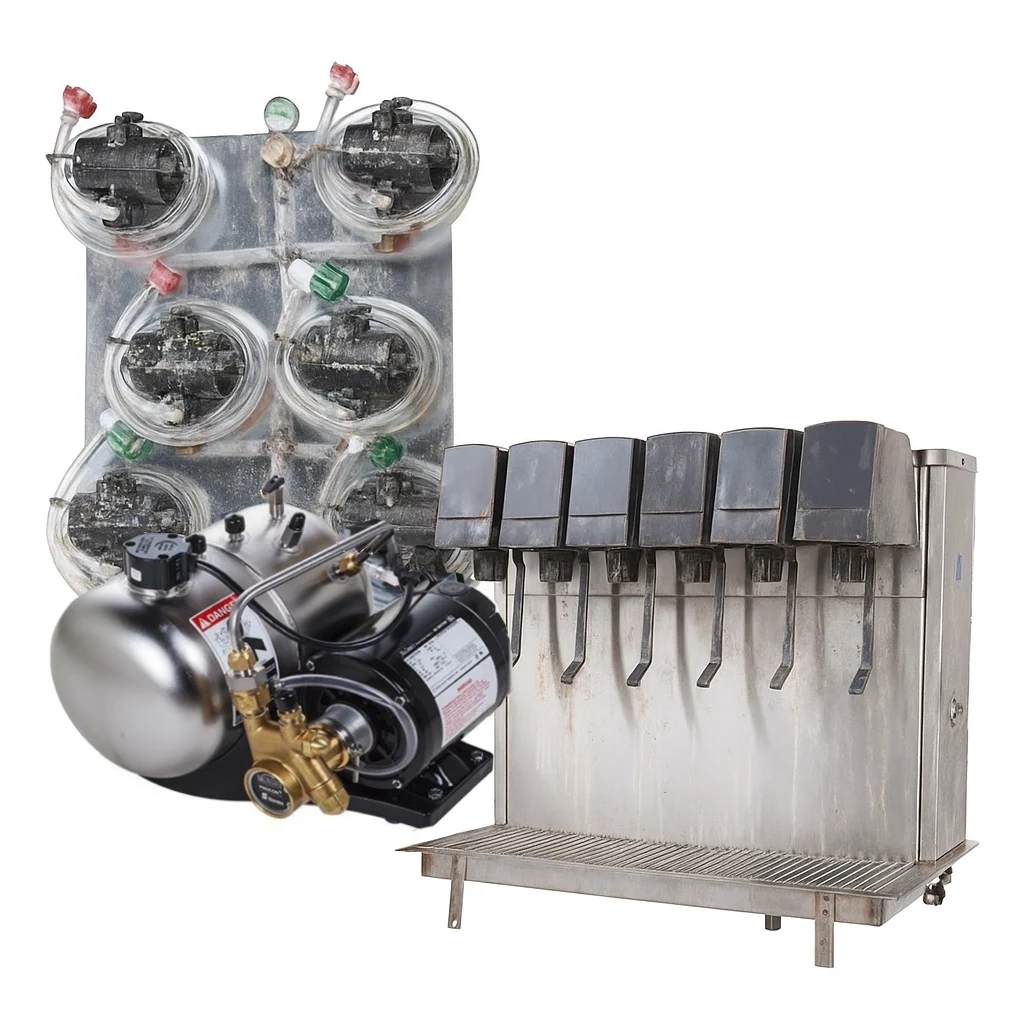
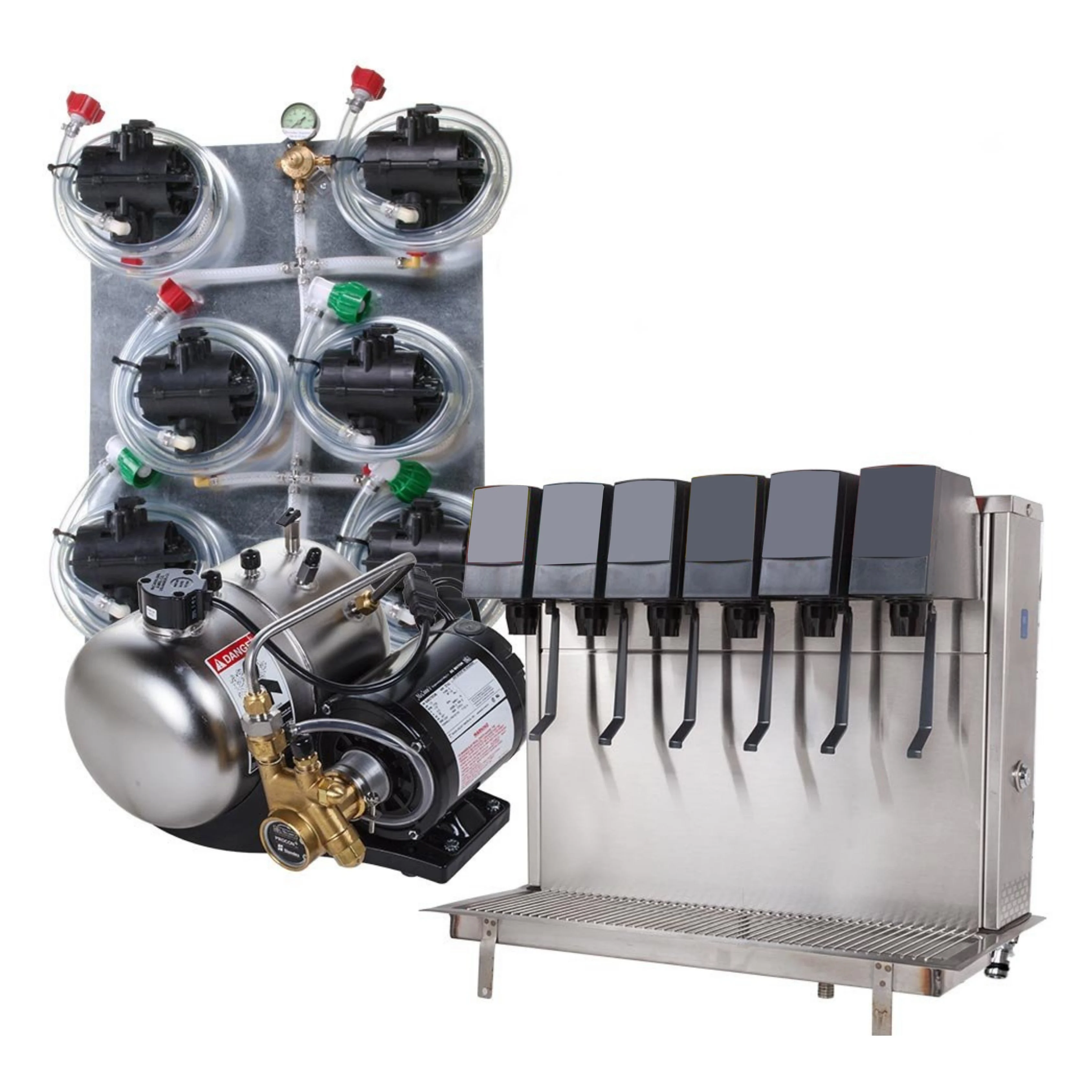
From chalk to charm
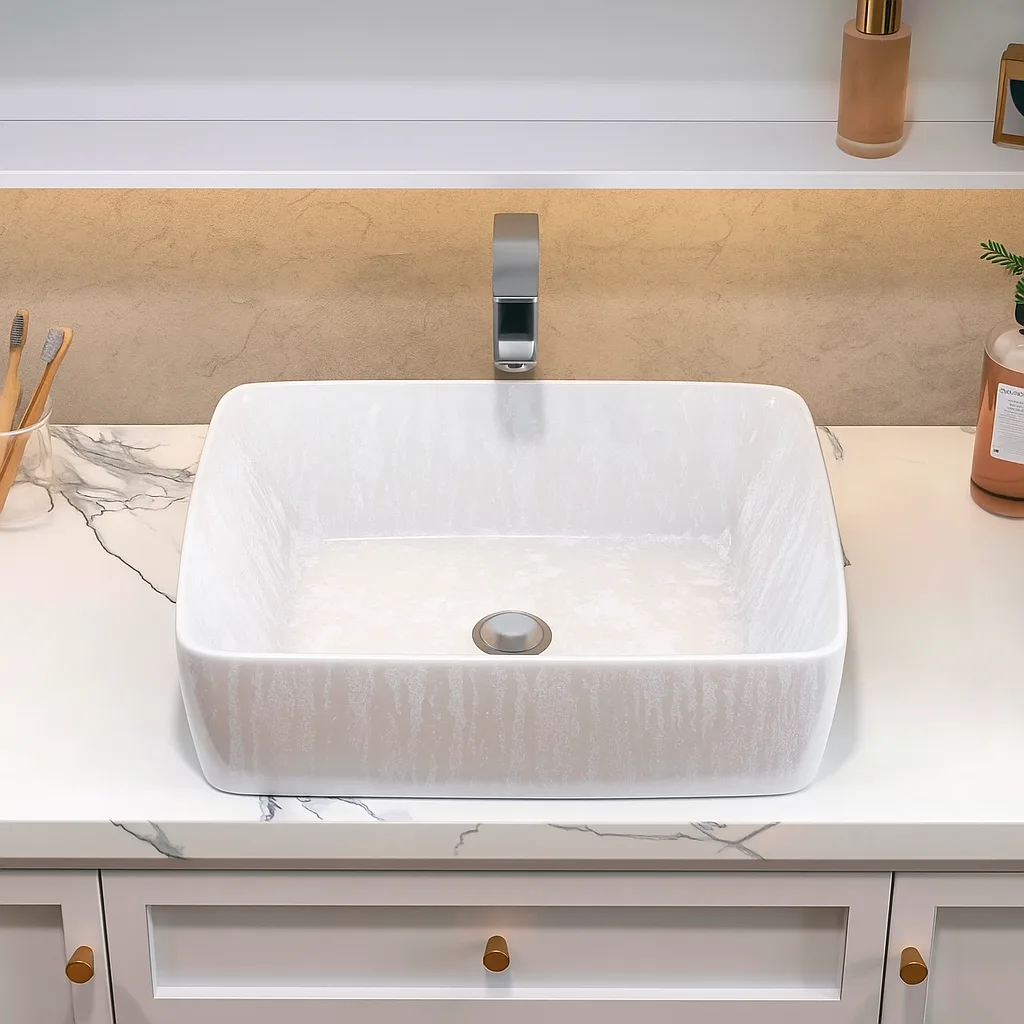
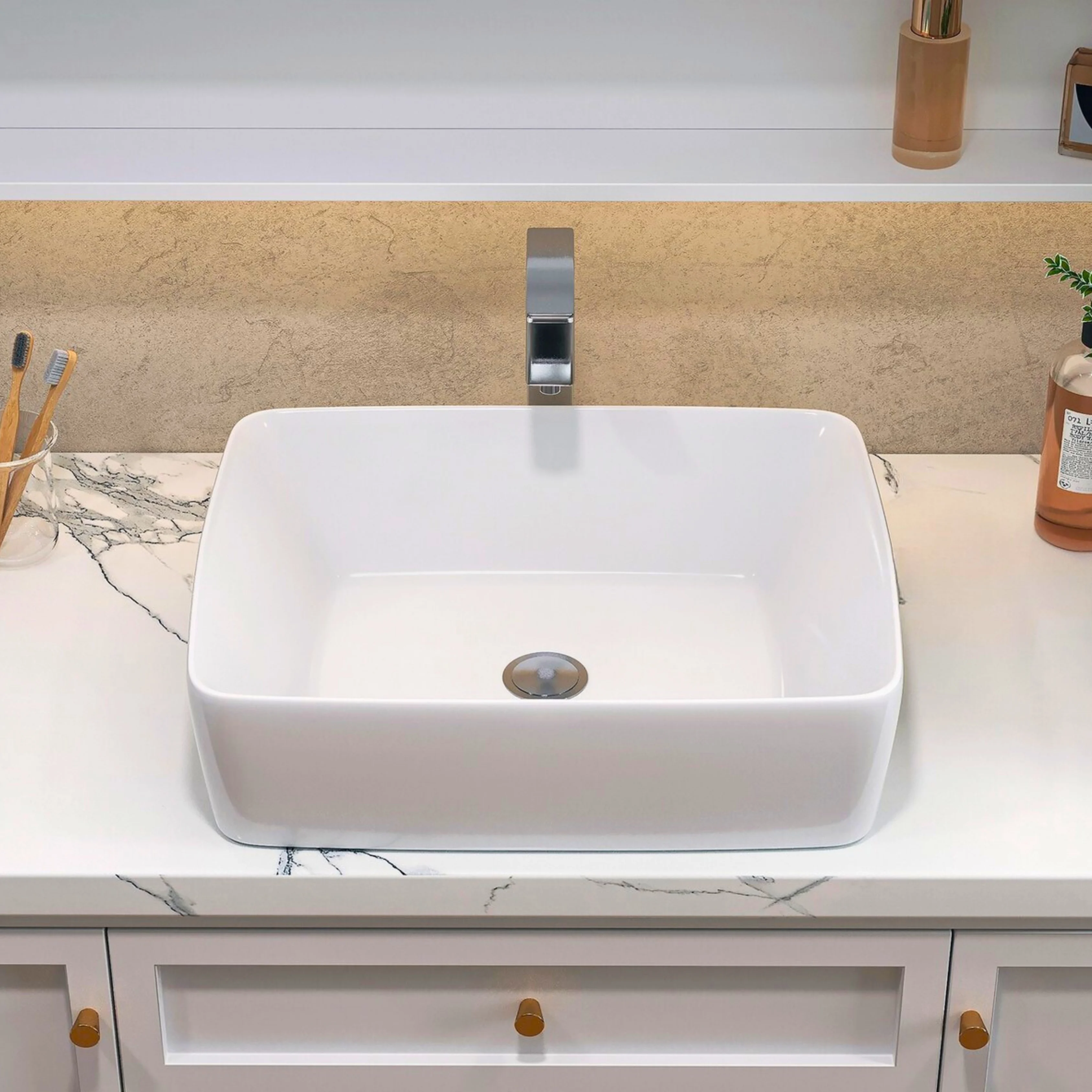
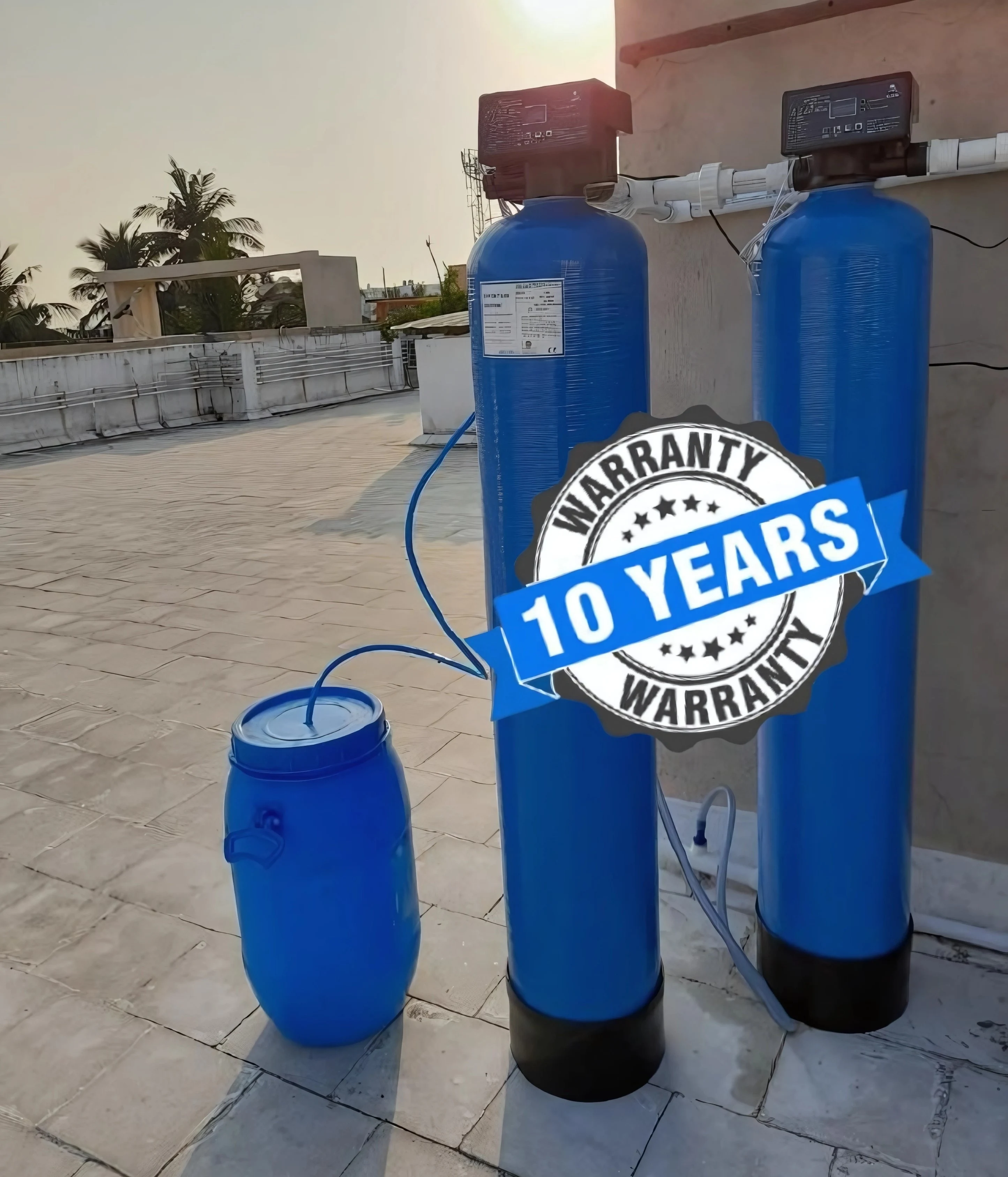
Features of Water Softener Plant For Hotels & Restaurants
- Efficient Hardness Removal
- High-Capacity Design
- Customizable Capacity
- Easy Installation & Maintenance
- Saves on Maintenance and Energy Bills
Our Watersparks Happy Family
GOODTrustindex verifies that the original source of the review is Google. Got clarity by hearing the technical briefing by you engineerPosted onTrustindex verifies that the original source of the review is Google. Water sparks have provided apt consultation w.r.t to my water problem. Mr Faarish has very patiently explained the pros and cons. His advice has definitely made us make the right choices. Thank you very much.Posted onTrustindex verifies that the original source of the review is Google. I interacted with the staff member, Mr. Faarish, who provided an excellent response and clear explanation. His service was professional and courteous, and I am really satisfied with the overall experience.Posted onTrustindex verifies that the original source of the review is Google. I had been planning to install water tank filters and approached Mr. Faarish for advice. Instead of rushing into the installation, he recommended conducting a proper water quality report first. Based on the results, it turned out that the filters were not necessary for my specific situation. This guidance saved me a significant amount of money. Mr. Faarish was honest, knowledgeable, and genuinely focused on my best interest rather than just making a sale. I truly appreciate his professional support and integrity. It’s rare to find someone so trustworthy in this field — highly recommended!Posted onTrustindex verifies that the original source of the review is Google. We were already using a water softener system which involves lot of manual work to operate rotate the Knob to wash it with salt and it requires frequent Softener Resine change every year We had to spend atleast 12k and the reason task is to follow up the person to change the media, so we looked into Water Sparks product while we search online and we had installed their Fully Automatic Water Softener Plant and Fully Automatic Filtration System, where the manual work is no more. Only work is we have to add Rock salt every 7 days or 10 days once, the water is better now. And we are never nearing the water plant to do the cleaning work which is really hassle free for us. Definitely we received a good support and post installation we had doubts to cope up with the system and we got a clear explanation for all our queries. Thanks team for your support and patience will recommend the product to my friends and if anybody reading this review have a call with their Experts to have a consultation.
Water Softener Plant - Actual Project Installation
Checklist to install Water Softener Plant for Hotels
- Assess water quality
- Choose the right Water Softener System
- Find installation location
- Gather necessary equipment
- Install pre-filters
- Connect the Water Softener System
- Install post-filters and storage tank
- Connect the drain line
- Check for leaks and test the system
- Maintenance and servicing
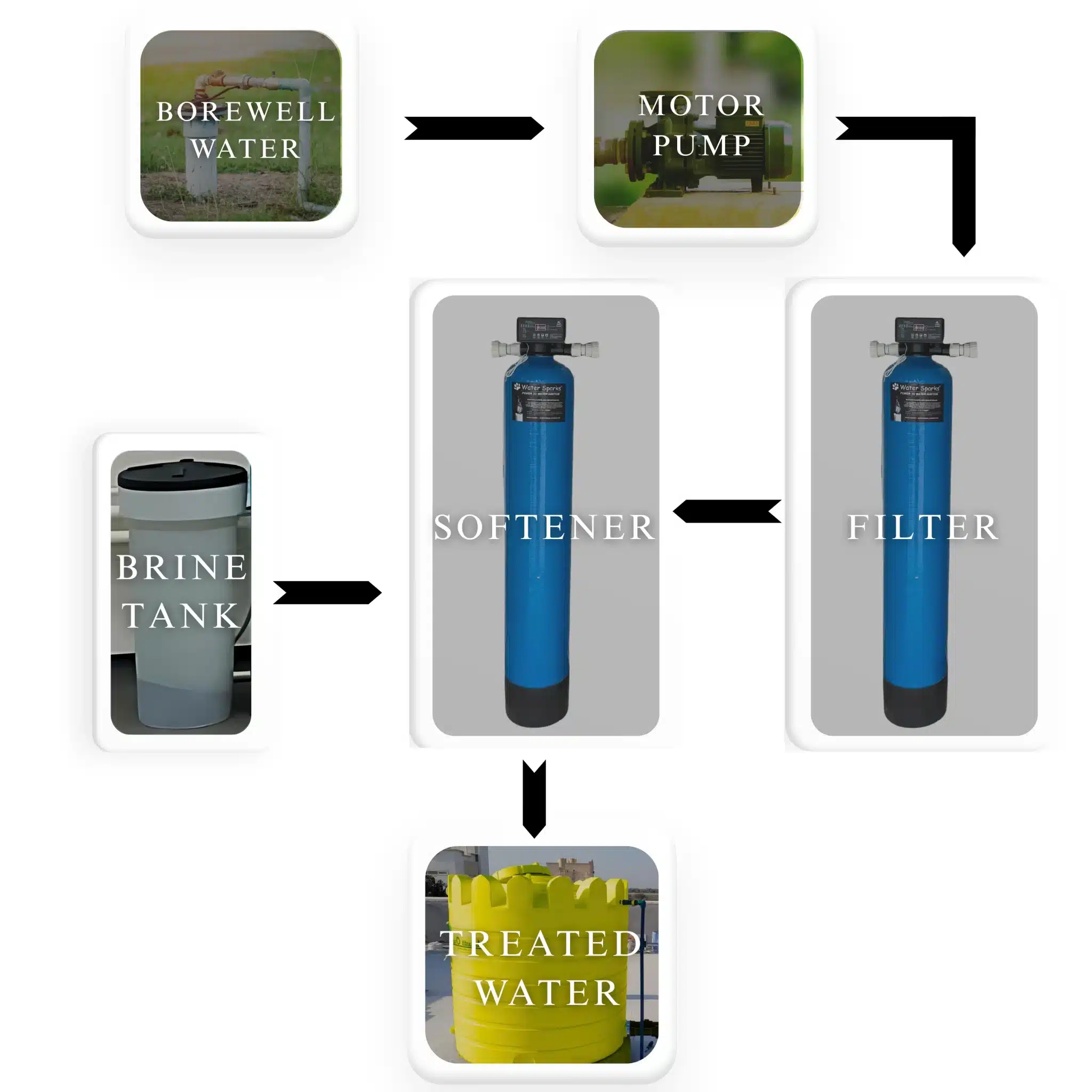
Checklist to install Water Softener Plant for Restaurants
- Assess water quality
- Choose the right Water Softener System
- Find installation location
- Gather necessary equipment
- Install pre-filters
- Connect the Water Softener System
- Install post-filters and storage tank
- Connect the drain line
- Check for leaks and test the system
- Maintenance and servicing

FAQ - Water Softener Plant For Hotel & Restaurants
Why do hotels and restaurants need a water softener?
Hotels and restaurants consume large volumes of water daily for cooking, cleaning, laundry, and guest use. Hard water causes scaling in appliances, spots on glassware, stiff laundry, and higher energy costs. A water softener prevents these issues by removing hardness-causing minerals.
How does a water softener improve guest satisfaction?
Soft water ensures spotless cutlery, glassware, and dishes, provides softer towels and linen, improves the taste of food and beverages, and enhances the overall guest experience.
What types of equipment are protected by using a water softener in hotels and restaurants?
Dishwashers, coffee machines, boilers, water heaters, laundry machines, and even pipelines are protected from scaling and damage when soft water is used.
Can a water softener help reduce operational costs?
Yes. By preventing scaling, equipment runs more efficiently, requires less maintenance, consumes less energy, and reduces the need for excess detergents and cleaning chemicals—resulting in significant savings.
How do I choose the right capacity water softener for my hotel or restaurant?
The right capacity depends on your daily water consumption, hardness level, and number of rooms or kitchen operations. Water Sparks provides customized sizing to ensure the perfect match for your facility.
How often does the softener require maintenance?
With proper installation, the only routine maintenance needed is salt refilling for regeneration. Periodic servicing ensures long-term efficiency and reliability.
Read More
Water Softeners for Hotels and Restaurants
The safety of food preparation, and protect plumbing systems and appliances. The challenge most hospitality businesses face is hardness in water, which leads to visible and hidden problems. Hard water leaves white stains on taps, tiles, sinks, and utensils, while also causing dry skin, frizzy hair, and dull laundry for guests. Over time, it damages heating equipment, reduces the lifespan of dishwashers and geysers, and increases maintenance costs.
The most effective solution to hardness in water is the installation of a water softener. A water softener in hotel kitchens, laundry units, and bathrooms transforms hard water into soft water, ensuring smooth business operations and guest comfort. For large properties, a centralized water softener for hotel operations guarantees a uniform soft water supply across bathrooms, kitchens, and laundry areas, reducing both complaints and repair bills.
Restaurants are equally affected by hardness in water. Scaling on utensils, poor lather of soaps, and reduced efficiency of kitchen equipment are common problems. This is the reason behind systems such as a small water softener for restaurants. These eliminate hardness efficiently, safeguard costly appliances, and provide enhanced hygiene and sanitation for cooking and dining spaces. A central water softener for restaurant establishments maintains the water soft and uniform throughout cooking spaces and customer toilets.
Organizations such as Water Sparks are in the business of offering effective water softener systems in India for hospitality applications. From a water softener to be used in bathrooms in guest rooms for avoiding white stains and dry skin, to an automatic water softener on a larger scale for hotels to take care of high loading conditions, they offer tailored systems. Their service covers water softener in Chennai, water softener Hyderabad, and extends to water softener manufacturers in Coimbatore, making them a trusted partner for hotels and restaurants across South India.
A water softeners for hotels not only solves visible problems like white stains on taps and sinks but also ensures long-term appliance protection. Most hospitality chains prefer to install a water softener in hotel bathrooms to minimize complaints from guests about dry skin and frizzy hair. A commercial water softener designed for hotel use can be sized according to the number of rooms, ensuring that each guest enjoys the luxury of soft water. An automatic water softeners for hotels also saves manpower as the system regenerates automatically.
For restaurants, hygiene is not negotiable, and a restaurant water softener guarantees this by eliminating scaling on equipment and utensils. An in-kitchen compact water softener is built to fit in small spaces but still packs powerful performance. Larger outlets can opt for a centralized water softener for restaurants, ensuring soft water for dishwashing, cooking, and guest restrooms alike. A commercial water softener for restaurants also improves soap lather, making cleaning more efficient.
Water Sparks is recognized as one of the leading water softener manufacturers in Chennai, with specialized systems for both hotels and restaurants. They also provide reliable water softener supplies in Hyderabad and its surrounding areas, ranging from mini bathroom water softeners to large industrial water softeners for hotels and other establishments. With expertise in maintenance and installation, they are one of the top water softener manufacturers in Coimbatore and a one-stop solution for hospitality industry players throughout South India.
How Does a Water Softener Work for Hotels and Restaurants?
A hotel and restaurant water softener removes magnesium and calcium ions, the major causes of hardness. In hotels and restaurants, a tank installation water softener guarantees that huge storage containers have a constant supply of soft water. Water Sparks offers water softener 1000 LPH systems, which can satisfy the high volume of hotel and restaurant operations.
When hard water passes through a water softener for tap systems, ion exchange occurs, replacing hardness-causing minerals with sodium ions. This prevents scale buildup in taps, showers, dishwashers, and even coffee machines in restaurants. A centralized water softener for hotel facilities ensures uniform water quality across all rooms, kitchens, laundry, and service areas.
Restaurants face challenges such as white stains on utensils, poor lather from soaps, and reduced efficiency of kitchen equipment due to the hardness of the water. Installation of a space-saving water softener for kitchen use in restaurants saves space yet provides effective treatment. Hotel kitchen water softener systems and restaurant dishwasher water softener systems ensure cleanliness, prevent scaling, and increase the life of costly appliances.
Across India, water softener installation services are offered by Water Sparks, one of the trusted water softener manufacturers in India. From water softener in Chennai to water softener Hyderabad, they provide solutions tailored to borewell water, municipal supply, and mixed water sources. Their expertise ensures that hospitality businesses benefit from consistent soft water, reduced maintenance costs, and improved guest satisfaction.
Hotels with large-scale operations prefer automatic water softeners for hotels because it reduce manual intervention and ensure seamless performance. Through using a water softener for tank installations, hotel management can store up to thousands of liters of pre-treated soft water to utilize in laundry, bathrooms, and kitchens. A master water softener for the hotel processes also guarantees consistency so that guests enjoy clean bathrooms and relaxing showers.
Restaurants with small kitchen space, in particular, depend upon a small water softener for restaurant space for uninterrupted operation. With the efficiency of performance coupled with space-saving design, these systems make perfect sense for commercial kitchens. Many prefer a water softener for tap systems in smaller restaurants, as it prevents visible stains on glassware and plates, ensuring customers always experience spotless dining. [1]
To meet diverse requirements, suppliers now provide specialized systems like a water softener 1000 LPH for heavy demand and a commercial water softener system for hotel laundries.
Restaurants can also benefit from automatic water softeners for hotels technology adapted to compact units, ensuring convenience without compromising effectiveness. With reliable water softener installation services, hospitality businesses can reduce costs, improve efficiency, and enhance guest satisfaction across every touchpoint.
Why is a Water softener for Hotels and Restaurants Important?
The necessity of a water softener in hotel and restaurant installations cannot be emphasized enough. Hard water leads to scaling, white marks, ruins plumbing, and raises operational expenses. For hotels, offering soft water in bathrooms increases the comfort of guests, since it avoids dry skin, dingy hair, and white marks on taps, tiles, and sinks, and additionally means improved lather from soap. A water softener for bathroom installations in guest rooms is often highlighted as a key factor in positive customer reviews.
Restaurants deal with challenges of taste, hygiene, and equipment maintenance. A compact water softener for a restaurant ensures that water used for cooking, washing vegetables, or cleaning utensils is free from hardness. The centralized water softener for restaurant kitchens provides consistent soft water that improves food quality, keeps utensils spotless, and extends the life of dishwashers and coffee machines.
Hardness in water also affects laundry operations in hotels. Linens and towels often become stiff and dull due to the accumulation of mineral deposits over time. A commercially purchased hotel laundry water softener helps to sustain the softness and lightness of the clothing. An automatic water softener ensures effective performance without any manual intervention, reducing staff workload and maintaining efficiency.
Whether installed in a water softener for tank systems or directly applied to a water softener for tap systems, soft water offers long-term cost savings and increased customer satisfaction. Water Sparks offers its water softener India solutions to hospitality providers in cities such as Chennai, Hyderabad, and Coimbatore and other places across the country.
A small water softener for restaurant kitchens not only guarantees spotless cleaning of the utensils but also makes cooking operations scale-free. With the use of a water softener for bathroom in hotels, the guests experience softer skin and smoother hair after taking a shower. Many hotels also rely on a commercial water softener for hotel laundry units to improve linen quality, while larger properties benefit from a fully automatic water softeners for hotels that reduces manual oversight.
Hospitality providers increasingly prefer installing a water softener for bathroom facilities in premium suites to guarantee a luxury guest experience. Similarly, a small restaurant water softener ensures consistency of taste throughout the cooking process. A kitchen water softener in a hotel maintains high levels of hygiene, and an automatic hotel water softener maximizes operations and decreases labour costs.
Water Sparks suggests pairing a space-saving water softener for restaurant facilities with a central water softener for bathroom installation in hotels for optimum results. A commercial water softener for hotel facilities defends expensive equipment against scaling, while an automatic water softeners for hotels provides hassle-free service with no interruptions. The combination ensures the availability of soft water across the property, enhancing both efficiency and customer satisfaction.
Health Risks Caused by Hardness in Water
Hard water not only presents technical issues but also observable and personal issues. Ongoing use of hard water in hotel bathrooms consistently dries out the skin, frizzes hair, and causes irritation to consumers. Such problems generally create complaints that negatively impact brand reputation. Providing a water softener for bathroom appliances in hotel rooms ensures soft water, enhancing guest comfort and satisfaction.
In kitchens, untreated hard water can change food and drink while depositing white residue on utensils and glassware. A space-saving water softener for restaurant kitchens ensures that cooking water, water for washing vegetables, and cleaning water are free from hardness. This enhances taste and cleanliness and also delivers a satisfactory dining experience to customers.
Scaling in water tanks and pipes is another significant issue induced by hard water. A water softener for tank applications in restaurants and hotels helps prevent scaling, reduces maintenance, and extends the longevity of plumbing systems. Similarly, water softeners for tap installations provide clean and soft water for washing and drinking. Water Sparks’ commercial water softener products for restaurants and hotels minimize these hazards while enhancing operational effectiveness.
Hotels in metro cities like Chennai and Hyderabad often struggle with high TDS and hardness in water. For such properties, a centralized water softener for hotel facilities is essential. With leading water softener manufacturers in Coimbatore and across India offering advanced systems, hospitality providers can effectively address issues such as white stains, dry skin, and frizzy hair, ensuring a seamless guest experience. [2]
A water softener for bathroom also reduces soap usage and prevents clogged showerheads caused by scaling. By offering consistent soft water, hotels ensure luxury bathing experiences that meet international guest expectations. Guests often highlight the difference in water quality when a water softener for bathroom is installed, making it a crucial investment for brand reputation.
For restaurants, the role of a compact water softener for restaurant extends beyond cooking and cleaning. It ensures that dishwashers, coffee machines, and beverage dispensers work efficiently without scale deposits. A compact water softener for restaurant also improves the shine of cutlery and glassware, reducing the need for constant re-washing and lowering water bills.
Large hospitality properties depend on a water softener for tank system to maintain smooth operations. An effectively designed water softener for a tank provides a continuous supply of soft water to all rooms, kitchens, and laundry areas. In addition, a centralized water softener for hotel setup is used in hotels that provide consistent results throughout the property. Reliable water softener manufacturers in Coimbatore offer these systems with advanced automation, enabling hotels and restaurants to deliver superior guest experiences.
How the Installation of a Water Softener for Hotels Reduces Health Risks
Proper water softener installation ensures that hotels can protect both guests and staff from the ill effects of hard water. The water softener installation in bath complexes guarantees that visitors enjoy a relaxing bath without dryness, irritation, or frizzy hair. A whole-house water softener in hotel properties guarantees a soft water distribution in all bathrooms, kitchens, and washing machines to guarantee comfort and guest satisfaction.
Hotels with large storage facilities are blessed with water softener for tank installations. This inhibits scale formation, bacterial action, and white spotting on taps, tiles, and sinks, resulting in safe water quality. A water softener for tap fittings maintains all outlets, dispensing clean and softened water. For restaurants, treated water ensures food maintains its original taste, drinks are prepared safely, and cooking equipment is free from scale buildup.
Water Sparks specializes in both manual and automatic water softeners for hotels, ensuring convenience and consistency. Their commercial water softener for hotel solutions protects expensive equipment like dishwashers, geysers, boilers, and washing machines from hard water damage. Their water softener India services cover major cities, offering water softener in Chennai, water softener Hyderabad, and water softener manufacturers in Coimbatore.
With high-tech systems such as a water softener 1000 LPH, restaurants and hotels can utilize high water usage without disruptions. A hotel’s automatic water softener enables smooth operations, enhances the comfort of guests, and minimizes guest complaints resulting from hard water conditions such as white spots, dry skin, and annoying hair.
A modern water softener for tank installation ensures hotel plumbing systems remain free from scale and damage. With regular water softener installation, properties can extend the life of geysers, pipelines, and dishwashers. Guests benefit from a premium experience when soft water flows through every water softener for tap connection in their rooms.
For big properties, a central water softener for hotel applications guarantees a continuous supply of soft water to all departments. From a bathroom water softener to a laundry water softener or restaurant kitchen water softener, soft water improves efficiency, reduces maintenance, and provides a quality experience for guests. Leading water softener manufacturers in Coimbatore design compact and automatic solutions for hospitality needs.
Restaurants using compact water softener systems protect dishwashers and cooking appliances from scaling. Water softeners for hotels also ensures that food preparation, beverage mixing, and utensil cleaning are done with pure, softened water. From water softener in Chennai to water softener Hyderabad, advanced solutions are available nationwide for tackling hard water problems in the hospitality industry.
Why Water Sparks Is the Best Choice for a Water Softener in Restaurants in Chennai, Coimbatore, Bangalore, and Hyderabad
Water Sparks is one of the leading water softener manufacturers in India, providing solutions specifically designed for the hospitality sector. No matter if you need a water softener in Chennai, a water softener Hyderabad, or water softener manufacturers in Coimbatore, their products are made with reliability and efficiency in mind.
Restaurants in Chennai, Bengaluru, and Hyderabad suffer from a water hardness issue, which causes white spots on utensils, dull grey garments, and scaling on kitchen appliances. A Water Sparks compact restaurant kitchen water softener is perfect for small kitchens, offering soft water for safe cooking, dishwashing, and beverage preparation.
Hotels across India require large-scale systems like commercial water softener for hotel operations. A centralized water softener for hotel ensures uniform soft water supply across guest bathrooms, kitchens, and laundry units. This helps prevent problems like dry skin, frizzy hair, white stains on taps and tiles, and scale formation in boilers or geysers. For ease, they provide automatic water softeners for hotels, which minimizes manual operation. [3]
Water Sparks also offers expert water softener installation for easy setup and long-lasting performance. Their water softener 1000 LPH units are best for heavy-duty applications such as resorts, spas, and banquet halls. With centralized water softener for restaurant installations, even high-traffic dining facilities enjoy smooth, soft water supply, guaranteeing improved guest satisfaction and equipment protection.
Installation of commercial water softeners for hotels not only enhances the shower water and cleaning water quality but also prolongs the life of expensive laundry machinery. Most upscale hotels select an auto water softeners for hotels as part of their eco-friendly program, with less energy consumption and lower maintenance expenses. Reputed water softener suppliers in India, such as Water Sparks, assist companies with cutting-edge technology and timely service.
A small water softener for restaurant is especially ideal for small and medium-sized dining establishments that experience perpetual problems with white stains and scaling. Professional installation of water softeners in restaurants guarantees that their cutlery, glassware, and kitchen utensils stay stain-free, which improves the entire dining experience. Whether it is a Chennai water softener or a Hyderabad water softener project, Water Sparks offers solutions for every scale of demand.
For big chains and high-end resorts, an automatic hotel water softener ensures seamless operations, continuous guest satisfaction, and fewer complaints of dry skin and hair frizz. Mixing this with a centralized hotel water softener installation provides uniform water quality in all establishments. From water softener manufacturers in Coimbatore to pan-India services, Water Sparks has become the go-to choice for establishments looking for quality, efficiency, and reliable support.
Water Sparks Water Softeners for Hotels and Restaurants Across Chennai, Coimbatore, Bengaluru, and Hyderabad
Water Sparks is now a well-established name in the hospitality sector to provide cutting-edge water softener solutions. Restaurants across these cities rely on compact water softener for restaurant kitchens to improve hygiene, keep utensils spotless, and maintain the true taste of food.
From large resorts to small dining outlets, Water Sparks provides centralized water softener for hotel and centralized water softener for restaurant systems that deliver consistent soft water across all service points. Their wide coverage ensures that clients looking for water softener in Chennai, water softener Hyderabad, or even water softener manufacturers in Coimbatore receive the right solution tailored to local water conditions.
With hotels across Chennai, Coimbatore, Bengaluru, and Hyderabad sporting their installations, they have managed to successfully address hardness of water in restaurants and hotels. Their system is designed to remove problems such as white stains on taps, dry skin after bathing, frizzy hair, and the formation of scale in appliances, providing comfort to guests and ease of work to employees.
Hotels are advantaged with specialized products such as automatic water softeners for hotels and commercial water softener for hotel laundry processes. For the satisfaction of the guests, a water softener for bathroom and a water softener for tank installation provide soft water in showers, faucets, and housekeeping processes.
A commercial water softener for hotel is especially useful for properties with high water consumption, as it prevents scale buildup in boilers, chillers, and pipelines. By installing a centralized water softener for hotel, property managers can protect plumbing infrastructure while also enhancing guest comfort. At the same time, a compact water softener for restaurant helps smaller outlets deliver spotless crockery, soft water for cooking, and better-tasting beverages without the negative effects of hardness in water.
With Water Sparks, clients can rely on tailored solutions like automatic water softeners for hotels, water softener Hyderabad, and water softener manufacturers in Coimbatore to solve hardness in water problems once and for all.
Why Choose Water Sparks' Water Softeners for Hotels and Restaurants?
The hospitality industry requires solutions that are both reliable and efficient. Choosing Water Sparks means investing in one of the leading water softener manufacturers in India, known for innovation and service excellence. Their systems are engineered to handle heavy demand while ensuring ease of operation.
For hotels, restaurants in busy metros such as Chennai and Hyderabad regularly complain of white spots and dull utensils resulting from hard water. With a restaurant water softener, all these issues are addressed efficiently, making for easier operations. Whether it is a small kitchen with a need for a small water softener for restaurant or a large outlet that needs complete support, Water Sparks has efficient systems. Their knowledge of automatic water softeners for hotels also applies to luxury resorts, where reliable water quality is essential.
For hotels wanting an investment for the long term, a commercial water softener for hotel means lower maintenance expenses and longer lifespan of costly appliances. Restaurant owners also enjoy reduced usage of harsh cleaning chemicals with a centralized water softener for restaurant. Like automatic water softeners for hotels, water softener 1000 LPH, and commercial water softener for hotel facilities guarantee an uninterrupted soft water supply for bathrooms, kitchens, and laundries. By removing hardness in water, these systems prevent white stains on taps, tiles, and sinks, while also ensuring softer laundry, smoother skin, and reduced hair damage for guests.
Restaurants trust Water Sparks for their compact water softener for restaurant kitchens and centralized water softener for restaurant operations that maintain consistent water quality for food preparation, dishwashing, and overall hygiene. With soft water, kitchen appliances remain free from scale deposits, utensils shine without spots, and food flavors stay unaffected.
Another advantage is their strong service network across major cities, including water softener in Chennai, water softener Hyderabad, and water softener manufacturers in Coimbatore. With professional water softener installation, they ensure that systems perform seamlessly from day one. Their dedication to solving hard water problems makes them the go-to partner for hospitality businesses seeking long-term, reliable solutions.
Water Sparks provides customized systems like automatic water softeners for hotels that are specifically tailored to the requirements of the hospitality industry. With simple regeneration and extended performance capabilities, their water softener 1000 LPH systems provide soft water to all service points. For hotels with a desire for immaculate bathrooms and kitchens, the commercial water softener for hotel installation provides seamless operations and increased guest comfort. [4]
Restaurants particularly value the compact water softener for restaurant kitchens, which helps eliminate hardness-related problems in food preparation and dishwashing. A centralized water softener for restaurant operations ensures that even large-scale outlets can rely on a steady supply of soft water. Whether in Chennai, Hyderabad, or Coimbatore, a water softener in Chennai or a water softener Hyderabad service ensures restaurants run efficiently while keeping their reputation intact.
Hotels across South India increasingly demand automatic water softeners for hotels to manage heavy guest traffic and laundry operations. The versatile water softener 1000 LPH capacity system works well for large resorts and business hotels. Partnering with water softener manufacturers in Coimbatore, Water Sparks ensures durable systems designed for regional water conditions. Meanwhile, restaurants continue to prefer compact water softener for restaurant kitchens that support hygiene, food quality, and consistent service.
Throughout the hospitality industry, water softener India solutions remain in increasing demand as companies begin to understand the value of addressing hard water issues. Boutique hotels to luxury resorts enjoy the impact of having soft water firsthand, leading directly to better guest experience and facilitation of sustaining a high-end brand reputation. From Water Sparks, facilities enjoy systems designed and installed by professional water softener manufacturers in India with the aim of efficiency and longevity in every unit delivered.
What sets Water Sparks apart is its ability to provide tailored systems that are optimized to suit diverse demands, making it one of the most dependable water softener companies in India. For large commercial premises or small restaurant-sized setups, technologically based solutions from them guarantee reliability. As the use of water softener India systems increases in cities, Water Sparks remains at the forefront with innovation, service support, and demonstrated performance, earning its place as the first choice for hotels and restaurants throughout Chennai, Coimbatore, Bengaluru, and Hyderabad.
Water Sparks’ Water Softeners for Hotels and Restaurants – A Smarter Choice
In today’s competitive market, restaurants and hotels cannot afford to compromise on the quality of their water. Hard water causes bathroom fixtures to show white stains, guests’ dry and frizzy hair, dull clothes, and higher maintenance expenses. It also reduces the lifespan of machinery, such as dishwashers, geysers, and washing machines, over time. With Water Sparks’ cutting-edge water softener technology in India, businesses can eliminate such issues and provide their customers with a better experience. With Water Sparks’ advanced water softener technology in India, businesses can eliminate these challenges and provide a better experience for their customers.
They offer solutions ranging from water softener for bathroom applications and water softener for tap spouts to centralized water softener for large-scale hotel use. Restaurants enjoy custom solutions like miniature water softener for restaurants and centralized water softener for kitchen use, which provide spotless utensils, easier-to-use cooking water, and longer appliance lives.
For large properties, Water Sparks provides commercial water softener for hotel facilities and water softener 1000 LPH systems that can manage heavy daily demand. Their automatic water softeners for hotels ensure an uninterrupted soft water supply with minimal manual intervention. With a strong presence across Chennai, Coimbatore, Bengaluru, and Hyderabad, Water Sparks offers professional installation and prompt service support.
By selecting Water Sparks, hospitality companies gain more than just a system—they’re investing in a future-proof water softener solution that removes water hardness, prevents stains, and enhances guest satisfaction, while reducing long-term maintenance expenses.
Hotels that implement automatic water softeners for hotels not only stop white spots on taps and tiles but also provide guests with a luxurious bathing experience. Whatever it may be, a water softener 1000 LPH for massive demands or a commercial water softener for hotel establishments, Water Sparks creates systems that accommodate varying capacities without being less in performance. With every water softener installation in India, businesses take a step toward long-term cost savings.
Restaurants gain significant value from compact water softener for restaurants, which help maintain consistency in water taste and hygiene. With a centralized water softener for hotel kitchen setup, chefs enjoy cleaner, softer water that enhances food preparation. The water softener for bathroom fittings and water softener for tap outlets ensure sparkling dishes and spotless utensils, all while reducing the frequency of descaling appliances. These water softener technologies in Indian systems bring operational efficiency and guest satisfaction together.
Water Sparks’ commercial water softener expertise for hotel projects guarantees hassle-free integration for even the most massive hospitality complexes. From auto water softeners for hotels that minimize human intervention to water softener 1000 LPH units that cater to peak loads from water and wastewater, their systems provide uninterrupted soft water. Being one of the top water softener technology providers in India, Water Sparks is helping hotels and restaurants with expert advice, prompt service, and technology that makes water management easier.
